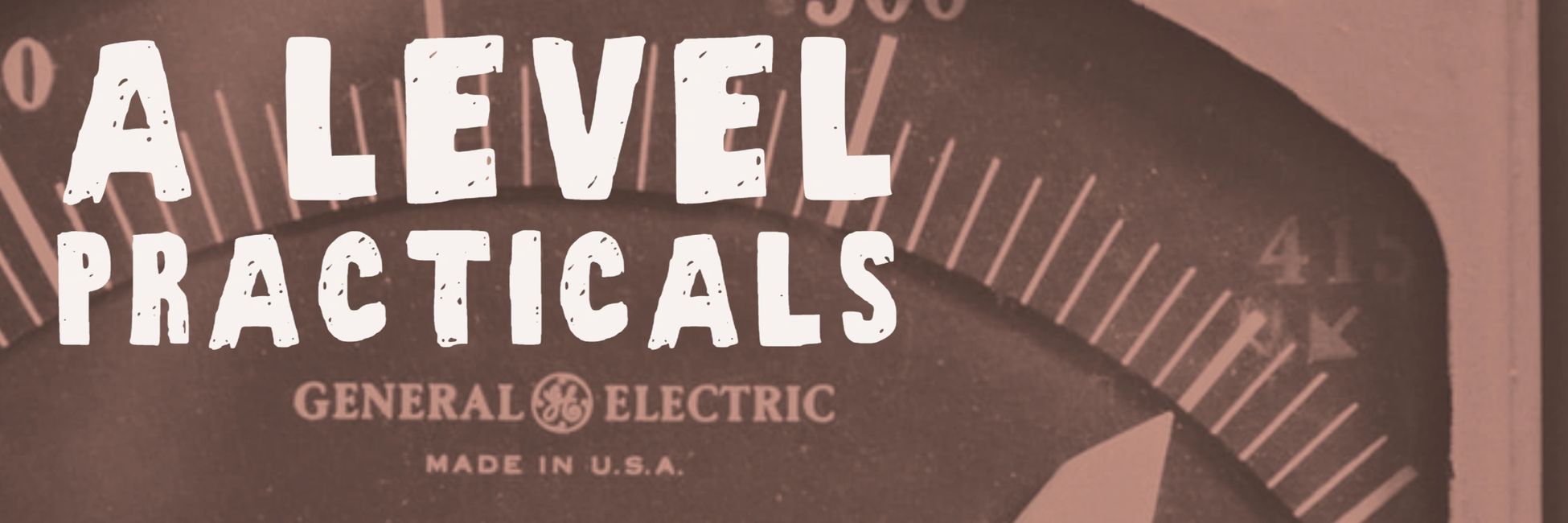
A Level Practicals
Memorise your core practicals.
Experiments - for the practical endorsement and for the exams!
Core Practicals, PAGs, Key Practicals, Assessed Experiments whatever your exam board calls them, these practicals are really important parts of these current A Levels. You need to know them inside out!
Your school should give you the opportunity to conduct them all, and should be keeping a record of all the write-ups that you do for them. To gain a practical endorsement you essentially need to show that you have completed a list of practical skills, don't worry about this, because if you complete all the required practicals you will definitely cover all the skills!
But for the exam, which many of you will be more concerned about, you need to be able to describe each practical in a good level of detail. There will be questions asking you to do just that. You’ll also need to be familiar with the techniques and equipment used, the analysis and the methodologies used and apply them to new practicals. In essence you'll need to be able to plan new practicals yourself under exam conditions.
The best way to do this is to look at the sheets for the practicals that you have done, in Edexcel there are a set of questions and answers, which pretty much will be the answers that the exam questions will be driving at. In OCR there is a little note at the end of each PAG sheet explaining which details will be beneficial to know for exams.
I'm going to give you a little mnemonic to remember for these practical questions in exams, it may be useful, it may not, but it is important that you learn experimentation in sufficient detail to do well in these parts of the exam. It uses the first letter of each syllable of the word experiment… ExPerIMent.
E - Equations. Each experiments starts from an equation, some quantities are measured, some are constant. Think about ALL the quantities in the equations relevant to the experiment. Make sure you state how to measure or how to control each one, giving values where appropriate.
P - Procedures. Think about what you will do, and how that will improve the accuracy, repeatability, precision or validity of your result. Be detailed, do not just say "measure the" say what it will be measured with and how, and why this technique will improve the quality of the results.
I - Improvements. No experiment is perfect, no reading is the true value, so what could be improved? As you are learning the experiments think evaluatively, what is the best way to do something, what makes one method or piece of apparatus good enough. Evaluation is one of the hardest skills in the A Level, so you need to be good at thinking in this way.
M - Maths. How are you going to analyse your results? What mathematical models are you going to apply in your experiment? Usually this comes down to which graph you are going to plot, and what data does it show. But we really like to get our equations resolved so we can plot a straight line, i.e. a y=mx+c graph, ideally with our target data as the gradient. But this section of your answer may also include the statistics work that you will need to be doing, means, uncertainties, error bar and lines of most and least slope... things like that.
Enjoy this section!
Enjoy striving for greater accuracy and precision as you conduct these practicals during your course. Evaluate them well and use it as a way to make sure you have all of the knowledge and skills to answer the questions on the practicals in the exam.
A Level required Practicals Playlist
Dive into the topics section below for more detail.
Topics
Detail your services
Display real testimonials
Announce coming events
If customers can’t find it, it doesn’t exist. Clearly list and describe the services you offer. Also, be sure to showcase a premium service.
Announce coming events
Display real testimonials
Announce coming events
Having a big sale, on-site celebrity, or other event? Be sure to announce it so everybody knows and gets excited about it.
Display real testimonials
Display real testimonials
Display real testimonials
Are your customers raving about you on social media? Share their great stories to help turn potential customers into loyal ones.
Promote current deals
Promote current deals
Display real testimonials
Running a holiday sale or weekly special? Definitely promote it here to get customers excited about getting a sweet deal.
Share the big news
Promote current deals
Share the big news
Have you opened a new location, redesigned your shop, or added a new product or service? Don't keep it to yourself, let folks know.
Display their FAQs
Promote current deals
Share the big news
Customers have questions, you have answers. Display the most frequently asked questions, so everybody benefits.